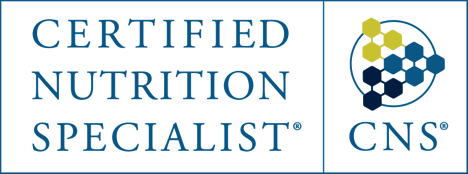Roni Enten Vissoker PhD
CNS, LDN
Individualized Biomedical Nutritionist


Home » Treatments for Autism
After receiving a diagnosis of autism or ASD, most families are eager to find the best ASD treatments for their child. Yet, the wealth of information and therapies available can make selecting the best autism treatment approach challenging, especially in light of the fact that according to the National Institutes of Health (NIH), there is currently no one standard treatment for autism spectrum disorder (ASD).
Despite the umbrella diagnosis of ASD, it is important to understand that every child or adult with autism has unique strengths and challenges, and a unique biochemical make-up. Thus interventions and treatments for autism should be individualized – or tailored to best address the child’s specific needs.
In addition to core diagnostic criteria, or the main symptoms of ASD themselves, ASD is also known to have common comorbidities or accompanying medical and mental-health conditions which also often need support. Many people with autism have additional medical conditions such as sleep disturbances, seizures and gastrointestinal (GI) distress. Eating and feeding problems, attention-deficit/hyperactivity disorder (ADHD), anxiety, depression and obsessive compulsive disorder are also common and require proper therapeutic interventions.
For a number of reasons, including eating problems and gastrointestinal problems, children with autism spectrum disorder (ASD) often do not get the nutrition they need for healthy growth and development. Some children with autism will only eat certain foods because of their texture, or might avoid eating foods because they cause stomach pain or discomfort. In addition, limited diets not supervised by a professional may also lead to nutritional imbalance. Addressing both nutrition and the remainder of these conditions and comorbidities properly is of the utmost importance in supporting a healthy and more optimal quality of life for a person with ASD.
The main traditional treatments for ASD involve improving behavior and communication. The most common treatments include applied behavioral analysis or ABA, ESDM (Early start Denver Model), and Floortime. In addition, many children with ASD benefit from physical and occupational therapy and speech therapy, which are mainstays for many children on the spectrum.
Other complementary or adjunct therapies which help ease autism symptoms include massage, osteopathy, cranio sacral therapy, homeopathy, chiropractic or functional neurology, music therapy, therapies with animals such as horseback riding, and many others.
In more severe cases, including when a child is experiencing excessive unwanted behaviors and aggression, pharmaceutical therapy is often recommended. However, since these treatments are often accompanied by side effects, some parents prefer other autism treatment approaches such as medical cannabis, which research has begun to show offers great promise in improving the quality of life of many children with ASD and their families.
As a result of increasing research on the impact of nutrition and the biological causes of ASD, Individualized Biomedical Nutrition (IBN) or “the biomedical approach” has become an increasingly sought out autism treatment approach for ASD. IBN uses a combination of basic nutritional assessment, combined with special dietary interventions when needed and conventional and functional laboratory testing to understand and then balance underlying root causes/biochemical issues commonly seen in ASD. This science-based approach especially when used in combination with the proper adjunctive therapies, can be a powerful tool for helping improve symptoms, function and quality of life for individuals with autism.
Specifically, the IBN or the biomedical approach can be a powerful tool to help improve symptoms such as poor sleep, gastrointestinal dysfunction, unwanted behaviors, socialization and communication delays. In addition, sensory balance, repetitive behaviors and stimming also improve in a large number of children as a result of addressing underlying biochemical / nutritional imbalance.
Many parents are not even aware that the most basic conventionally recommended laboratory tests that can help shed light on their child’s functional health status. Tests like blood chemistry, liver and kidney function tests, cholesterol panel, iron studies, and vitamins and amino acids can be valuable tools for identifying children whose symptoms may stem from a lack of critical nutrients, which is a common finding in children with ASD.
In addition, autism nutritionists and biomedical practitioners often recommend special diets [ex: GFCFSF diet, SCD, GAPs diet, Low Oxalate diet, modified ketogenic diets, and other special diets] and allergy elimination diets to help relieve symptoms and heal gastrointestinal and immune imbalances. Supplement protocols often provide basic nutrients such as iron and vitamin D as well as more specialized supplements which support healthy methylation with vitamins such as B6, B12, and folinic acid, and gastrointestinal health, with probiotics and tailored diets. Minerals such as magnesium and zinc, as well as critical amino and fatty acids and phospholipids such as Omega 3 and 6 are also recommended to support function and health.
An important final note: Parents, please remember that regardless of your individualized program, remember that for all children with ASD, it is important to work with a nutrition specialist/provider to ensure your child is still getting all the nutrients he or she needs to grow and thrive.
Comments Off on Treatments for Autism